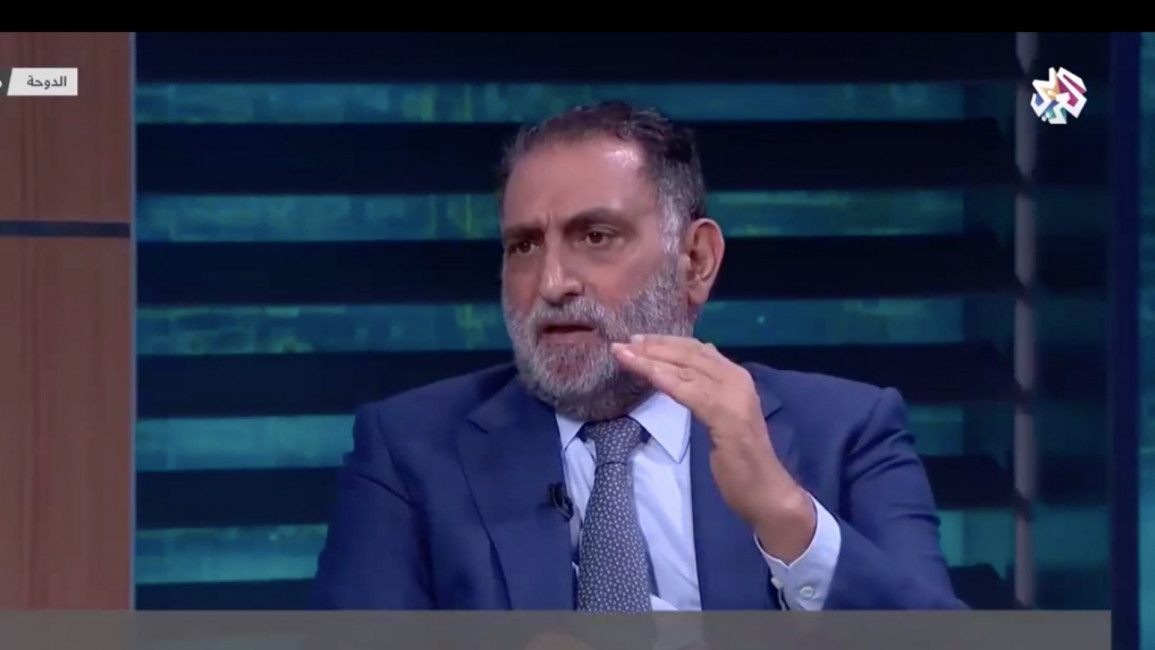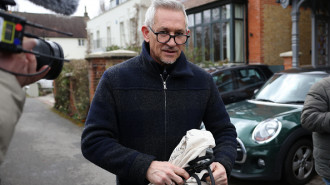Azmi Bishara: The Israelis know they won't be able to stay in Gaza
Dr Azmi Bishara, Director of the Arab Center for Research and Policy Studies, believes Israel will face further armed resistance in the Gaza Strip and will not be able to remain there.
In an interview with Alaraby TV, the third since the start of Israel's brutal assault on Gaza, Bishara pointed out that the occupying power didn't have a plan for "the day after" their stated goal of toppling Hamas, a goal he cast double on the Israelis' ability to achieve. He added that the US will have given Israel a deadline to "accomplish its mission, " which is unlikely to exceed much more than a month.
The Americans still share Israel's war objectives according to Bishara, who made a few positive observations regarding decisions made at the Arab-Islamic Summit, held in Riyadh Saturday and for which expectations were low.
Resistance achievements and its discourse
Bishara said he believes Israel "has not yet faced" the full capabilities of the Palestinian resistance fighters – adding that "there are thousands of fighters waiting for the moment the ground battle commences".
However, in his view, the official media rhetoric of the resistance and its language fail to do justice either to their impressive military performance or to the suffering of the people in Gaza: "They need to adopt the language of justice - which their cause represents".
Bishara also stressed that while Palestinian leaders have repeatedly missed chances to forge unity, without which it will be impossible to rule the West Bank and Gaza, he is also convinced that the Israelis know they won’t be able to remain in Gaza.
According to his reading of the situation, the Israelis are currently "looking for an Arab partner willing to manage the affairs of Gaza's population after reducing their numbers." Moreover, they would like to establish a security coordination system with this partner similar to the failed one in the West Bank. In Bishara's view, however, this scenario completely ignores the likely reaction of Palestinians who have "lost everything".
In addition to this, "we mustn't forget that Israel has never been ready to pay the financial price of the occupation, in terms of expenses and investments; therefore, it will ask Arab countries to invest funds to rebuild Gaza, as it has done before".
Regarding the trajectory of current events, he said: "In the same way that the Israeli leadership had no plan to occupy Gaza, it also had no plan for "the next day" - for what will follow the end of the war, and its [attempted] elimination of Hamas, both its rule and its military capacity".
He dismissed the importance of the US touting a new peace conference, as the Arab world had witnessed "this scenario" countless times. Moreover, the Americans know Israel refuses to make any concessions to the Arabs - especially today "after they [the Arabs] have failed even to rescue a hospital or secure the entry of aid to the Gaza Strip".
On the intensive targeting of hospitals
Israel is systematically targeting hospitals due to Israel's conviction that it will be impossible to displace the people without destroying their hospitals and schools, Bishara said, as they would otherwise be shelters for civilians.
Regarding Israel having switched its military priorities from focusing on the north of the strip to the south, Bishara explained that after the events of 7 October, Israeli officials were forced to draw up a military plan hastily, and they had adapted the facts to suit the plan.
For example, "the focus on the north, […] was because they decided to start the war in the north. Perhaps today they have learned that the Hamas leadership and prisoners are in the south, not the north."
On this point he concluded: "Either there are plans to expel the population of Gaza from the north to the south and from there into Sinai, or this is a reflection of Israel's confusion, which is also highly likely."
Negotiations on hostages
On the new negotiations regarding a ceasefire and the Israeli hostages, Bishara believes that for Netanyahu, the sole concern is the military aspect, and "perhaps in his subconscious, he wishes to get rid of the hostages in the Gaza Strip" and from the pressure they are causing him - and from what they will say once they get out if that happens in line with an agreement.
Bishara said one crisis the negotiations have brought up is connected to the number of hostages whom the Israelis are demanding be released, which is larger than the number of prisoners held by the two movements, Hamas and Islamic Jihad.
Regarding the resistance's proposal to free all the Israeli hostages in exchange for all the Palestinian prisoners, Bishara said the Israelis have not engaged with this offer in any seriousness and have not presented a single realistic answer for their own people or to the relatives of the hostages in Gaza.
He pointed out that the world was preoccupied with a few Israeli prisoners, whereas there were thousands of Palestinian prisoners languishing in Israel's detention centres.
The Arab-Islamic Summit
Bishara described the outcomes of the joint Arab-Islamic extraordinary summit on Gaza, held in Riyadh last Saturday, as partially acceptable given the low expectations and when the weakness of the Arab reality was considered, alongside the many disputes among the state officials that gathered.
In Bishara's view, the decisions showed the Palestinian cause's return to the centre stage, and he highlighted repeated statements that criticised normalisation with Israel in the absence of a just solution to the Palestinian issue.
The one practical decision made was standing with Egypt to break the siege by opening the Rafah crossing at least for aid and assistance, subject to Israeli agreement, said Bishara, pointing out that now they would need to decide how to enforce that decision.
He also commended the leaders' rejection of Israel's rhetoric about "self-defence" and their refusal to condemn Hamas.
The US and Israel
Bishara stressed that the US still supports Israel and is partnering with it in its war objectives, which are to eliminate Hamas and its military capacity.
However, he said the US administration was now facing internal dissent and a rise in voices rejecting its official stance within the left wing of the Democratic party and amongst Jewish Americans.
This is because these people have impacted the administration's public discourse, and Netanyahu has been forced to respond to American enquiries about limits to the war and his future plans.
However, in Bishara's assessment, the official US pressure is still not genuine and is limited to "giving friendly advice". Real pressure can only come "after a strong Arab stance influences the US, leveraging diplomatic relations and security coordination with Israel and so on, which hasn't happened yet."
Bishara believes continued protest against Israel's assault is of utmost importance. It could influence the official US stance - for electoral reasons - "and it appears that Biden has started to realise this. However, the man has ideological convictions when it comes to Israel and Zionism".
In a parallel context, he said French president Macron recently tried to differentiate himself by supporting a ceasefire, "but German Chancellor Olaf Scholz immediately rejected any halt to Israel's war, so Macron's words are not understood to represent the EU position. Still, overall, America continues to impose its stance on Europe."
He ended by summarising the central problem the Arab world has with Europe - in addition to its historical guilt complex linked to the Holocaust, for which the Arabs have been made to pay the price. This is that Europe "gives Israel privileges as though it is practically a European state. For Palestinians, it would be enough that these privileges – commercial, academic and economic - stop being given to Israel."



